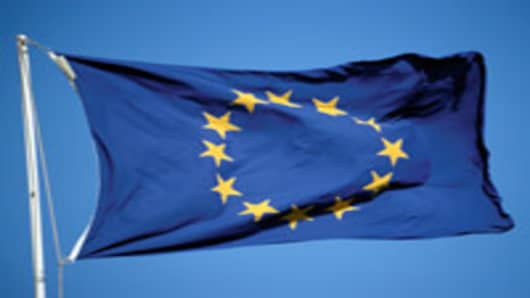The current European conundrum is not just a financial crisis. It’s a crisis of governance and leadership. Companies, governments and citizens are struggling to understand its roots and to find possible solutions for it. The truth is that unless we consider some relevant institutional dimensions / dynamics, analyzing the economic aspects of the crisis alone will not be enough to the end the turmoil.
The new role of Germany in the European Union (EU) has made EU institutions obsolete, including the management of the European Central Bank (ECB) . Since the EU’s founding, Germany played a key role in its development, but traditionally showed an inclination to side with France on key issues, leaving aside its own national interests for the sake of the European project's success. Until recently, German citizens agreed with this approach.
Today, Germany is different: the European wars are a thing of the past. Its economy is booming, and the country feels self-confident again. Its citizens want to enjoy their economic success and feel tired of aiding profligate countries like Greece. Since Germany is by far the biggest European economy, this change in attitude and strategy has deep implications for the EU. The most important is that the EU is no longer a collegial government among state members, but a German-dominated one, and consensus-building is more elusive than ever.
This new German assertiveness -and the paralysis of the EU Commission- coincides with the 2008 US financial crisis and the subsequent global economic slowdown, as well as the sovereign-debt crisis in Europe in 2010-2011. The complexity of the problems is much greater than in past crises. The impatience of financial marketsis more acute and the need to coordinate policies among different state members -each one with different political cycles, elections and different domestic agendas- is truly cumbersome. But we should not underestimate the EU.
From an institutional viewpoint, the EU looks complex, but it has been this way since the start and has always found a way to overcome major challenges. Germany and France, in particular, know what is at stake.
Beyond the current financial crisis, companies and investors need to remember some basic facts. For example, the overall public debt in the EU is lower than in the US, even as the EU is better than the US at providing for some basic social services, e.g. healthcare. Another aspect to highlight is that the level of productivity in manufacturing is higher in the EU than in the US; it is not the case in services, where the US has the lead. Also, the efficiency and profitability of some European retail banks -particularly the large ones in Spain, France and Britain- remain very strong. Liquidity may be a problem for some banks today, but not solvency. With more flexible ECB policies and a stronger European Financial Stability Fund, liquidity problems can be tackled efficiently. The broad measures approved on October 26 may not be enough, but are a move in the right direction.
The “new” EU and the economic future of the world
From these circumstances two crucial lessons should help shape future EU-US relations: First: yes, there is a financial crisis in some European countries which is having a wider impact on the whole EU, but things have to be kept in perspective. The EU is still a very rich, powerful and productive economic block. Some EU countries need to work hard to get out of the recession and slash their public debt, however most of them are already on the right path. The US can help by gently pushing the EU towards a definitive solution for its sovereign-debt crisis. This will also help the US commit itself to clean up its own public deficit and national debt.
Second: The US needs a prosperous Europe. While the US’s efforts to assert leadership in Asia make sense, a stronger cooperation between the two pillars of world peace and prosperity – i.e., the US and the EU- is more important than ever. The sheer size of bilateral trade and foreign direct investment is huge. Cooperative strategies in liberalizing trade and pushing a shared agenda on key global issues have paid off in the past. This cooperation may make the impact of US foreign policy in Asia and other parts of the world even stronger.
In the final days of preparation for the next G-20 summit, a common agenda between the US and Europe in trade, financial services, public debt and financial stability may be the best approach to restore confidence, put the EU crisis in perspective and ward off doubts against recession in the world economy. It is unclear whether the US alone can lead in the 21st century. What is clear is that the partnership between the US and the EU is more relevant to both sides -and to the whole world- than ever.
Jordi Canals, PhD, is the Dean of IESE Business School. He is the author of "Building Respected Companies: Rethinking Business Leadership and the Purpose of the Firm" (Cambridge University Press, 2010)


